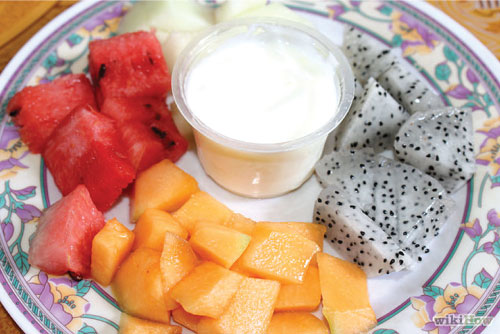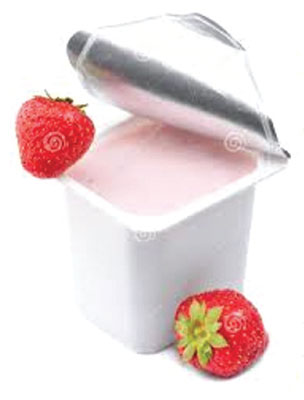What is Yoghurt?
One of the oldest and most-popular fermented foods, yoghurt is known
around the world. Where did yoghurt come from and how is it made today?
The word yoghurt comes from Turkey and refers to a tart, thick milk.
Yoghurt does not have one single origin, however.
 It can be found in nearly every culture that kept animals for milk.
It was likely discovered in similar ways in each region. It can be found in nearly every culture that kept animals for milk.
It was likely discovered in similar ways in each region.
When fresh milk is left in a container with friendly bacteria, the
milk thickens and develops a delicious sour taste. The lactic acid
produced by the fermentation also acts as a preservative, helping the
cultured milk stay pleasant longer.
Warmer regions favoured thermophilic bacteria, while cooler areas
favoured mesophilic bacteria. The Greek yoghurt starter is an example of
a heat loving (thermophilic) culture.
Filmjolk is an example of a cooler temperature (mesophilic) culture.

Around 1900, scientists started studying and isolating the bacteria
that make yoghurt. Very soon after, they were able to combine selected
strains that would culture reliably for commercial creameries. These
blends are called direct-set cultures.
With no starter to maintain, direct-set starters made it possible for
a company to consistently make the same yoghurt with each batch. Thanks
to their research, it is now simple to buy powdered yoghurt starter such
as our delicious Mild Flavour Yoghurt starter and make this same yoghurt
at home. In 1981, the FDA defined fresh, prepared yoghurt in the US and
stated that it must include Lactobacillus bulgaricus and Streptococcus
thermophilus.These strains are found in all of our direct-set starters,
as well as our Bulgarian and Greek heirloom starters.
Does that mean the mesophilic starters do not make true yoghurt?
According to US law, these prepared cultures cannot be sold and labelled
as yoghurt. Traditionally, they have been known as yoghurts and most
still refer to them as such.
It certainly does not lessen their wonderful flavour or beneficial
bacteria! Many things have changed since people first cultured milk into
a thick, tangy snack.
However, yoghurt is still tremendously popular and enjoyed around the
world. History is likely to show that fact unchanged as long as people
have access to milk!
- Internet |

